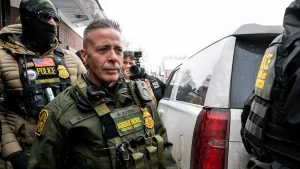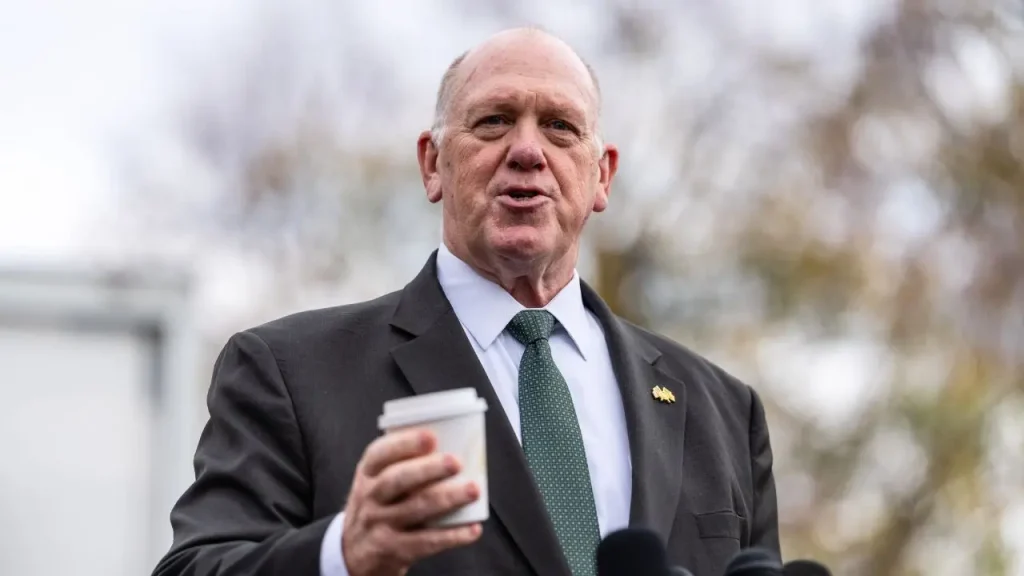Catholic Church Clash with Trump Administration on Immigration: Tom Homan’s Response
In a bold confrontation that highlights the growing tension between religious institutions and government policy, Border Czar Tom Homan publicly criticized the Catholic Church for its stance on mass deportations. Speaking at the White House, Homan, himself a lifelong Catholic, expressed frustration with church leadership, suggesting they should “spend time fixing the Catholic Church” rather than opposing immigration enforcement measures. His comments came in response to the U.S. Conference of Catholic Bishops’ recent condemnation of President Trump’s immigration crackdown, which they warned was creating “a climate of fear and anxiety.” The conflict represents a significant rift between the administration and one of America’s largest religious institutions on the moral dimensions of immigration policy.
The clash intensified following Pope Leo’s call for “deep reflection” on migrant treatment under the Trump administration, which has implemented aggressive deportation policies. Homan’s response highlighted what he perceives as hypocrisy within the Church, pointing out that Vatican City itself imposes strict penalties on trespassers. “So according to them, the message we should send to the whole world is that if you cross the border illegally, which is a crime, don’t worry about it,” Homan argued, expressing concern that the Church’s position undermines the rule of law and judicial process. His frustration was evident as he questioned whether the Church’s message to migrants was essentially that they needn’t worry about deportation orders issued by federal judges after due process.
Central to Homan’s defense of strict border policies is his claim that they ultimately “save lives” compared to more permissive approaches. He painted a grim picture of the human cost of irregular migration, describing desperate migrants relying on violent cartels for dangerous border crossings that have reportedly resulted in over 4,000 migrant deaths. Additionally, Homan connected border security to the fentanyl crisis, claiming that thousands of Americans have died from drugs smuggled across the border. “Secure border saves lives. I wish the Catholic Church would understand that,” Homan stated, framing the administration’s enforcement policies as ultimately more humane despite their apparent harshness.
The border czar’s comparison between national borders and Vatican security measures became a focal point of his criticism. “We have a right to secure our borders, just like they have a right to secure their facility,” Homan argued, suggesting that the penalties for unauthorized entry into Vatican City are “much worse” than those imposed by U.S. immigration authorities. This comparison attempts to highlight what Homan sees as inconsistency in the Church’s position – advocating compassion for those who cross U.S. borders illegally while maintaining strict security at its own boundaries. The argument reflects broader tensions in the immigration debate between humanitarian concerns and sovereignty rights.
Homan’s remarks represent more than just a policy disagreement – they highlight fundamental questions about the role religious institutions should play in political matters. As border czar under the Trump administration, Homan has been a central figure in implementing and defending controversial immigration policies, including family separations and mass deportations. His public rebuke of the Catholic Church, an institution with significant moral authority and millions of American adherents, demonstrates the administration’s willingness to directly challenge religious leaders who oppose their policies. This confrontation occurs against the backdrop of a deeply divided nation where immigration remains one of the most contentious political issues.
The exchange also underscores competing visions of what constitutes humanitarian immigration policy. Homan proudly declared that under ICE enforcement, the U.S. now has “the most secure border in the history of this nation.” This security-focused perspective stands in stark contrast to the bishops’ emphasis on the human dignity of migrants and refugees. While Homan frames strict enforcement as ultimately protecting lives by discouraging dangerous journeys and reducing drug trafficking, Church leaders have consistently emphasized welcoming the stranger as a core Christian value. These divergent perspectives reveal profound differences in how Americans understand national security, human rights, and moral responsibility in the context of global migration – differences that will likely continue to shape the national conversation regardless of who occupies the White House.














